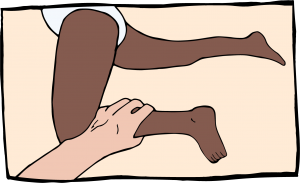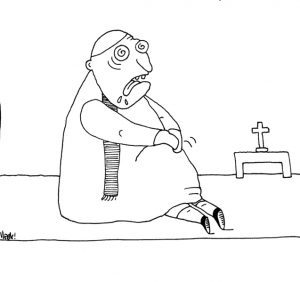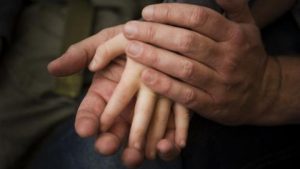paedophilia

Paedophilia literally means ‘love’ (Greek ‘philo’) for a ‘child’ (Greek ‘paed’). Here, ‘love’ means sexually oriented love, i.e. ‘being in love’ or ‘infatuation’. Also, the term ‘paedophilia’ refers to feelings that ‘adults’ have. A child who is in love with another child is not called a paedophile even though he or she, strictly speaking, is one.
Dominant view of paedophilia
The dominant view of paedophilia is that it is an extremely dangerous sexual deviation. In medical and related circles it used to be called a ‘perversion’, now the term ‘paraphilia’ is preferred. The gist of these terms, however, is the same. Allegedly, paedophilia is a pathological and dangerous tendency, an addiction, a congenital abnormality, disturbed behaviour in a grown-up caused by childhood experiences (usually said to be sexual abuse too). So the professionals and sexologists, who are supposed to be scientific, side with the common view, which uses the term ‘child abuse’ as a synonym for ‘paedophilia’. There is some discussion about the distinction between paedophile desires or traits which cannot be helped, and paedophile actions, which are sometimes labelled as ‘pedosexual’ and are by definition considered to be wrong, harmful, dirty and evil, and said to deserve the harshest punishment. There is a general hysteria around paedophilia, which demonstrates the continuing primitivity of human nature. The term ‘paedophile’ is used quite indiscriminately for anyone suspected of sexual feelings for ‘children’, ranging from the possession of ‘child pornography’ to ‘child abuse’ or the ‘lust murder’ of children.
Distinction between child and adult

Paedophilia and reproduction
The origin of the distinction between a child and an adult is related to reproduction, i.e. sexual intercourse (coitus), in which the penis penetrates the vagina, ejaculation occurs, and the result is pregnancy and child birth. This is an ‘adult’ thing: a thing that a ‘child’ is supposedly not yet capable of and that ‘elderly’ people are supposedly no longer capable of.
Based on this criterion, we mentally and often unconsciously divide the world into ‘adults’, ‘children’ and the ‘elderly’. Although we know that this categorization is not in line with how people really are, it is reinforced daily. Small children and elderly people do not have sex, unlike the middle group between 20 and 60. If the law sets the age limit at 18, and the public media and the education system promote the law, most people will look upon people under 18 as ‘children’. This is the situation in many of the world’s countries, including the developed western world. At the same time, people are confronted with sex at an increasingly younger age, usually in the context of titillation, vice, danger, violence, jealousy and fraud.
This common image of paedophilia clearly shows how poor the prevailing knowledge of sexuality is. ‘Experts’, such as doctors or psychologists, social workers and other professional helpers, may bring some nuances to the prevailing harshness, but they, too, are remarkably ignorant. This ignorance is caused by emotions which are invariably part of their own standard socialization within the sexual system.
The word ‘child’ also has a strong emotional meaning. ‘Do not touch my child’, is the aggressive call by a parent who has an ingrained protective instinct. A ‘child’ is automatically considered to be ‘innocent’, with no knowledge of sexual feelings and desires. Although everyone (by their own experience) knows that this is not true, it remains an emotional starting point. Experts, for instance, say that the sexual feelings of ‘children’ are completely different from those of ‘adults’. The scientific description of the existence of sexual behaviour in very small children by Sigmund Freud in 1905 caused severe resistance which has continued to exist to this day.
Young is beautiful
Everyone undoubtedly has the tendency to find youth beautiful and sexually attractive. Most people fall in love (which is the same as ‘to find sexually attractive’) before they are twelve years old. It constitutes one of our earliest aesthetic experiences, an image of beauty and desire that usually remains with us. Later during adolescence, reproduction claims our attention and a different kind of behaviour takes over. We become more attracted to the characteristics of potential sexual partners, for instance breasts, hips, buttocks, a low voice, broad shoulders, shapely facial contours, or a healthy appearance. This youthful beauty is an ideal all around the world. We call it ‘culture’ but it really has its origin in ‘nature’ because mating with a young and healthy partner means that offspring will have a better chance of survival. The choice of partner plays an important role in both human and animal evolution. Everyone consciously or unconsciously tries to find a partner who is as healthy and attractive as possible.
Fear and guilt about paedophilia
Our sexual desires, however, cannot be reduced to reproductive behaviour only. We may have intercourse that does not lead to pregnancy. We masturbate, for which we use our imagination, pictures, texts, objects, or exciting settings. We may be attracted to someone who is of the same sex, older or younger, ugly, disabled, stupid, and so on. Humans naturally possess a wider range of possibilities than most other animals. Especially the male sexual desire is by nature programmed to overcome strong barriers on the way to conception and pregnancy. On the other hand we are also programmed for anti-sexual behaviour, which channels desire in such a way that reproduction becomes the main purpose of lust. Feelings of fear and guilt about non-reproductive sexual behaviour such as masturbation, homosexuality or other variants are a kind of feedback mechanism that keeps us ‘under control’, and which at the social level takes the form of disapproval and punishment
Paedophile as an identity
Some people call themselves paedophiles, but that is primarily because society forces them to do so. Paedophilia concerns only a tiny proportion of their personality which probably has its origin in personal experiences as well as in genetic factors. It is a desire that one can be aware of as a child but which usually becomes conscious at a later age. Because the social pressure of being ‘normal’ is extremely strong and because ‘paedophiles’ are thought of as ‘child rapists’, most people suppress their paedophile desires, or in any case do not put them into practice.
Some people are hit hard by the negative messages they believe to hear about themselves every day. What goes for paedophiles nowadays was (until recently) also true for homosexuals. Their desire for love was portrayed as a repulsive crime, which caused much silent suffering, loneliness, superficial and guilt-ridden contacts, depression, suicide, and sometimes violence. With the emancipation and even legalisation of gay partnerships (see gay marriage), homosexuals have become part of the ‘normal’ world, at least among the modern tolerant middle classes. In any case, they are no longer seen as dangerous criminals or a threat to society. Whether this will ever become true for paedophiles is hard to say.
